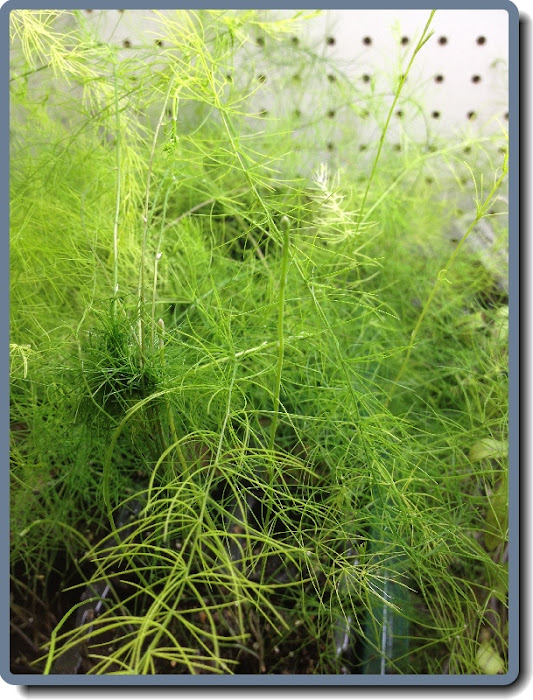It's the time of year to buy young plants if you haven't started yours.
Kira has many of her own, but not everything that we want in the gardens;
tomatoes and peppers in particular.
While most people head to the store, we visited our friend Dave instead.
We no longer consider whether or not to buy from the local community.
It's more a matter of who has what.
You can be certain that within each community, everyone has their own skills.
And if we were better connected with each other, there would be more opportunity to keep local economies more robust.
Like most people in rural areas, Dave has a variety of skills and experiences that allow him to make a living.
One of those is propagating plants.
Using available rooms at his home, there is an assortment of plants ready for sale and trade.
Kira was armed with a tray of Tomatillos that needed extra care and attention.
Our home is not great for starting plants and so Kira felt the plants would thrive better in Dave's care.
In light of the issues that we have been addressing, there was the opportunity to talk about maintaining a seed exchange.
Cultivar diversity has suffered greatly at the hands of commercialization, and the responsibility to preserve seed stock often falls to the passionate.
Creating an area wide exchange base of plants and trees, both seed and propagation materials, strengthens the overall vigor of local food production.
Not only is stock exchanged, but knowledge too.
Cultivars that best suit local conditions may be exemplified, and specific details on care may be shared.
A local exchange may not incorporate a large enough inventory to preserve the greater portion of threatened cultivars, but if all communities did this, the combined effort could be considerable.
This may be especially valuable if climate change shifts locals choices out of favour.
Communities could reach out to each other in order to find alternatives suitable to the changes taking place.
Supporting your neighbor helps keep their passions funded and is the only way that individuals will be able to keep skills and abilities honed.
Of course, the benefits of barter trading go a long way to strengthening community ties and financial independence.
Consider your own strengths and interests, and how to incorporate them into your local economy.
Dave has expansion in mind, but much of his time is devoted to the business of making ends meet.
As a carpenter and arborist, work is a matter of feast or famine in cottage country.
When work is plentiful, time favours earning money.
When work is scarce, capital for projects can be difficult to separate from the houshold budget.
Gaps in between seasons make balancing a tough act.
There are greenhouse plans with many of the materials already on hand.
The current demand for plants provides a strong incentive for growing more.
But Dave's love for growing plants isn't driven by market economics.
Passion alone is enough.






No comments:
Post a Comment